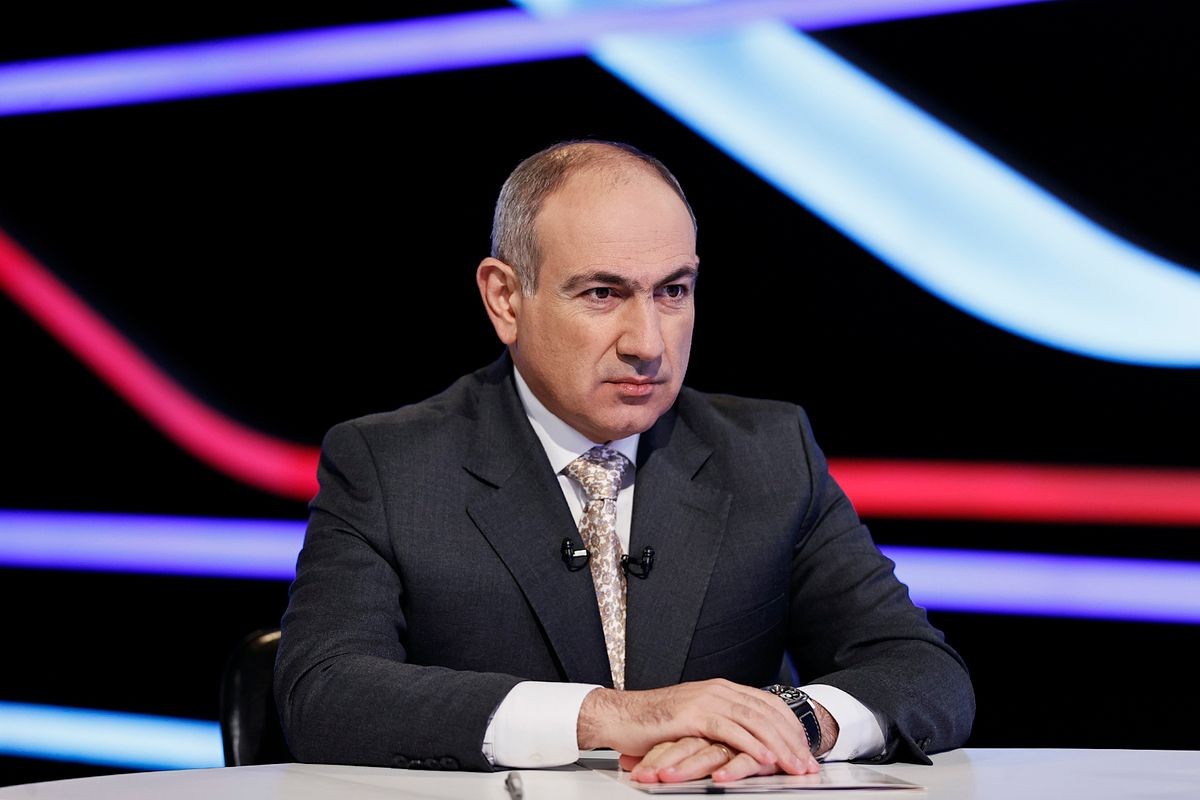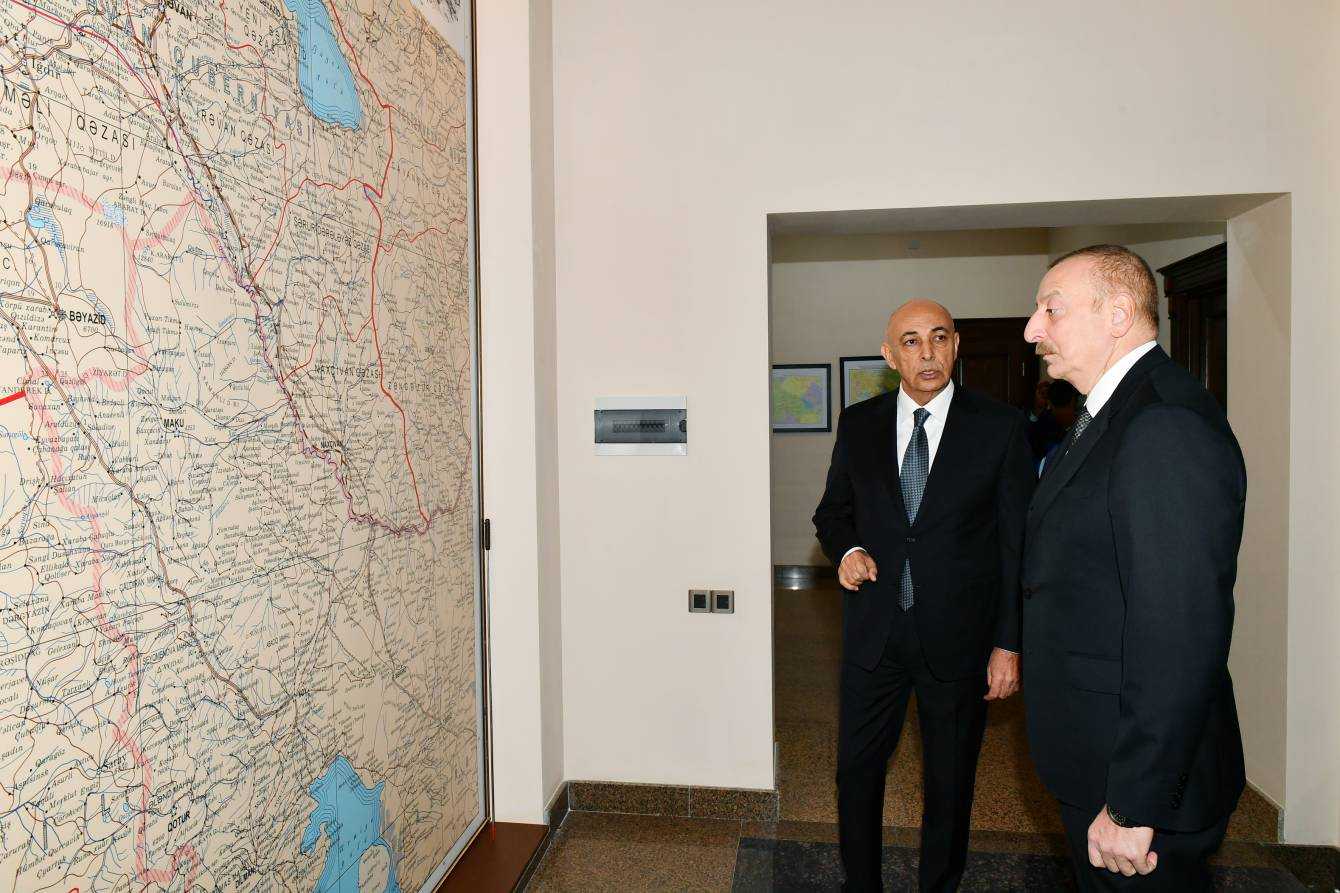Pashinyan says ‘real threats are being generated’ in Azerbaijan against Armenia

In an article published on Monday, Armenian Prime Minister Nikol Pashinyan insisted that the claims about Armenia’s intention to attack Azerbaijan ‘are simply made-up’. Instead, he noted that ‘solutions to this situation are on the table’ and those were ‘generated as a result of the joint work’ of the sides.
‘Armenia is purportedly preparing to attack Azerbaijan, therefore it is better for Azerbaijan to attack Armenia as a preventive measure’, Pashinyan wrote, attempting to ‘restate’ the ‘official narrative’ of Azerbaijan ‘in shorter and simpler terms’.
Pashinyan suggested there are ‘two potential origins’ of those narratives — ‘either Azerbaijan really thinks that Armenia intends to attack Azerbaijan, or Azerbaijan intends to attack Armenia and is trying to create a foundation for doing so’.
Pashinyan dismissed the narrative of Armenia’s intention to attack Azerbaijan as ‘simply made-up’.
In order to prove his point, he reiterated that Armenia has no territorial claims against Azerbaijan in addition to having no intention of ‘using military means’ to return control over Armenia’s ‘more than 200 square kilometres of territories’ occupied by Azerbaijan in 2021 and 2022.
Instead, he stated that there was ‘a real and substantive possibility to resolve it in practice in the demarcation process’.
‘A gross violation of international law’
Pashinyan also addressed Azerbaijan’s continuing criticism of Armenia’s procurement of arms.
This issue has been raised by several high-ranking Azerbaijani officials multiple times, and was touched upon during Azerbaijani President Ilham Aliyev’s latest interview in early January, when Aliyev insisted that Armenia ‘must immediately stop arming’.
At the time, Aliyev claimed that ‘arming Armenia will simply lead to new tensions’, and posed an additional demand — ‘the weapons that have already been sent to Armenia must be returned’.

Azerbaijan’s demands come as the country is increasing its military budget, as well as saying that defence spending is a ‘number one priority’. Azerbaijan has also continued to scale up its arms purchases.
Pashinyan wrote that Armenia was ‘reforming’ its army ‘to protect its territorial integrity and sovereignty’, calling it an ‘internationally-recognized right of any country’, and saying that challenging it was ‘a gross violation of international law’.
Pashinyan did not deny that the reforms were also connected to Azerbaijan, elaborating that ‘threats to the security’ of Armenia were generated there.
As an example, Pashinyan cited the ‘Western Azerbaijan’ narrative, an irredentist concept commonly used by the Azerbaijani authorities to lay claim to the territory of modern-day Armenia.
Pashinyan stated that the narrative was ‘sponsored by the top leadership of Azerbaijan’, which has posed territorial claims against 60% of the sovereign territory of Armenia.
‘Now, let us see this in combination with the staged trial taking place in Baku, Azerbaijan’s billion-dollars procurement of weapons, and [...] Baku’s aggressive rhetoric, only to make it clear that real threats are being generated in Azerbaijan against the security of the Republic of Armenia’, Pashinyan wrote.

Pashinyan concluded his article by pointing at the ‘solutions’, which ‘are on the table’ and were ‘generated as a result of the joint work’ of the two sides.
He reiterated that ‘the agreed part’ of the peace treaty was ‘sufficiently weighty and mature for signing’, and that Armenia ‘has proposed comprehensive solutions’ for the two non-agreed articles.
Pashinyan also enumerated other proposals submitted by the Armenian side, and noted that the works of the bilateral commissions on border demarcation ‘are operating normally and constructively’, and that commissions for prisoners of war, hostages, and missing persons of the sides held a meeting last Friday.
‘All of this means that there are no prerequisites for escalation in the region and, moreover, all the prerequisites for peace have been put in place’, Pashinyan said, adding that it was necessary ‘to abandon staged actions and a policy of staging escalations, and to establish institutional peace’.
‘Armenia not only is ready for this but will not divert from this path’, Pashinyan concluded.











